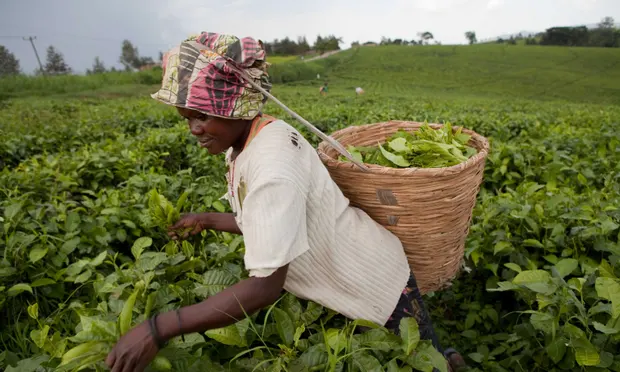A recent study has found that rising temperatures caused by climate breakdown cause distress to the foetuses of pregnant farmers, who are among the worst affected by global heating and the climate crisis.
The study shows that the foetuses of women working in fields in the Gambia showed concerning rises in heart rates and reductions in the blood flow to the placenta as conditions became hotter.
The women, who do much of the agricultural labour and work throughout pregnancy, told scientists that temperatures had noticeably increased in the past decade.
Recall that a report released last month showed strong evidence that extreme heat leads to increases in stillbirths, premature births and low birth weights albeit the data used in the report is from rich, temperate countries whereas the new study focuses on subsistence farmers in a tropical country, where increasing extreme heat is a serious concern.
Even if the global temperature is kept below the internationally agreed limit of 1.5C above pre-industrial levels, hundreds of millions of people around the world, including mothers, are expected to be exposed to extreme heat.
Read also: Senators urge Agriculture secretary to help Western states in ’22-year mega-drought’
There is already strong evidence that extreme heat leads to increases in stillbirths, premature births and low birth weights but this data is from rich, temperate countries. For the first time, the study focuses on subsistence farmers in a tropical country, where increasing extreme heat is a serious concern.
The research is the first step to understanding why foetuses suffer when expectant mothers are stressed by heat and possible reasons include sweating that leads to dehydration and the diversion of blood and oxygen from the placenta to the mother’s skin in order to cool the body. The scientists now aim to provide evidence for measures to protect expectant mothers and foetuses, such as growing trees to shade women as well as crops.
In her reaction, Dr Ana Bonell at the Medical Research Council Unit in the Gambia and the London School of Hygiene & Tropical Medicine, who led the research, said: “Our study found that pregnant subsistence farmers commonly experience levels of extreme heat above recommended outdoor working limits and that this can have significant effects on their health and the health of their babies.
Speaking further, she said, “What we were very shocked to find was that in 34% of the visits [to the fields], there was this impact on the foetus.”
A series of studies published in January found that the climate crisis was damaging the health of foetuses, babies and infants across the world. Scientists discovered increased heat was linked to fast weight gain in babies, which increases the risk of obesity in later life. Higher temperatures were also linked to premature births, which can have lifelong health effects, and to increased hospital admissions of young children.
The research, published in the journal Lancet Planetary Health, involved 92 pregnant subsistence farmers in a rural district of the Gambia. During the seven-month study period, the average air temperature during working hours was 33.5C (92.3F).
The scientists also measured humidity, the women’s temperature and the heart rate of expectant mothers and foetuses. The researchers found that when the woman’s body temperature and heart rate rose by one category in a heat strain index, the risk of foetal distress rose by 20%. Foetal distress was indicated by a heart rate over 160 beats per minute, or reduced blood flow to the placenta, as measured by an ultrasound scan.
The team also found that when a measure of heat stress rose by 1C, the risk of foetal distress rose by 17%. It rose by 12% even when the rise in the woman’s temperature and heart rate was accounted for, indicating other factors affecting the foetus. These may include dehydration, low placental blood flow or heat-related inflammation.
Story was adapted from the Guardian.
